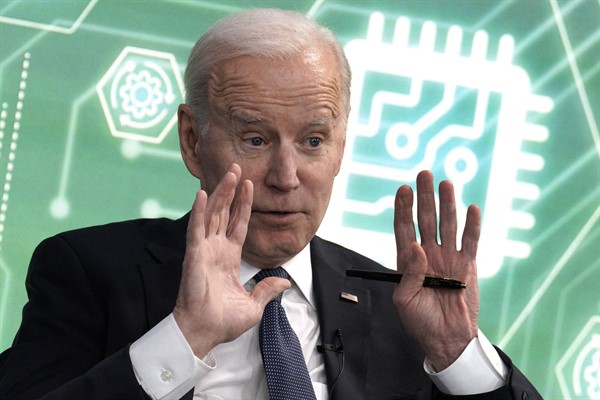Semiconductors, the tiny chips that power everything from Apple iPhones to F-35 fighter jets, are a true product of globalization. Their technological sophistication is matched only by the logistical complexity of their supply chains, which stretch across the planet.
It should be no surprise, then, that these chips are feeling the impact of accelerating deglobalization. Over the past several years, manufacturers of everything from shoes to home appliances have moved to reshore production, encouraged by protectionist governments erecting trade barriers to protect domestic economies from geopolitical forces. Gradually, the “just-in-time” supply chains of the globalized world, which outsourced aspects of production to lower costs at scale, are giving way to a “just-in-case” model that accepts the higher costs of domestic suppliers in order to prioritize security and resilience. Rather than offering a competitive advantage, international supply chains have become, as the Guardian puts it, “a web in which countries can trap one another” as they pursue their foreign policy objectives.
The semiconductor industry was first battered by U.S.-China trade tensions during the administration of former U.S. President Donald Trump. The pandemic’s widespread supply chain disruptions further exposed the sector’s hidden vulnerabilities, triggering a chip shortage that continues to this day. Now, the war in Ukraine has led the U.S. and European Union to ban the sale of semiconductors to Russia, a policy that South Korea and Taiwan, two of the world’s leading semiconductor exporters, also intend to enforce. As fears mount that the conflict in Eastern Europe could be a prelude to one over Taiwan, it appears that the securitization of semiconductors is in full swing.

